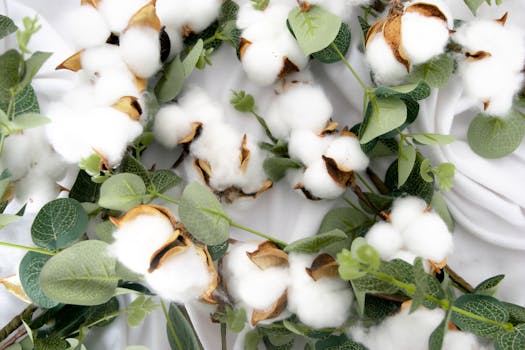
Eco-Friendly Fibers: How African Companies are Leading the Green Textile Movement
African companies are at the forefront of the green textile movement, using eco-friendly fibers to create sustainable textiles that are better for the environment and consumers. The use of eco-friendly fibers is becoming increasingly popular, and African companies are taking advantage of this trend to create innovative and sustainable textiles.
The green textile movement is driven by the need to reduce the environmental impact of the textile industry. The production of textiles is one of the most polluting industries in the world, with the use of chemicals, water, and energy contributing to climate change and pollution. However, African companies are finding ways to reduce this impact by using eco-friendly fibers such as organic cotton, hemp, and bamboo.
The Benefits of Eco-Friendly Fibers
Eco-friendly fibers have several benefits, including reduced environmental impact, improved health and wellness, and increased durability. Organic cotton, for example, is grown without the use of toxic pesticides or synthetic fertilizers, making it a healthier choice for consumers. Hemp, on the other hand, is a highly durable fiber that requires less water and pesticides than traditional cotton.
Bamboo is another eco-friendly fiber that is gaining popularity. Bamboo is a highly renewable resource that requires minimal water and pesticides, making it an attractive alternative to traditional cotton. African companies are using these eco-friendly fibers to create a range of textiles, from clothing and upholstery to carpets and rugs.
African Companies Leading the Way
African companies are leading the way in the green textile movement, with several companies already making a significant impact. One such company is the South African-based company, Seardel, which is using eco-friendly fibers to create sustainable textiles. Seardel is one of the largest textile manufacturers in South Africa, and its commitment to sustainability is evident in its use of eco-friendly fibers.
Another company making waves in the green textile movement is the Ghanaian-based company, Tex Styles Ghana. Tex Styles Ghana is using organic cotton to create a range of textiles, from clothing to upholstery. The company is committed to sustainability and is working to reduce its environmental impact through the use of eco-friendly fibers.
The Nigerian-based company, Nigerian Textile Mills, is also using eco-friendly fibers to create sustainable textiles. Nigerian Textile Mills is one of the largest textile manufacturers in Nigeria, and its commitment to sustainability is evident in its use of eco-friendly fibers such as hemp and bamboo.
The Future of the Green Textile Movement
The future of the green textile movement is bright, with African companies leading the way. As consumers become more aware of the environmental impact of the textile industry, they are demanding more sustainable textiles. African companies are well-positioned to meet this demand, with their use of eco-friendly fibers and commitment to sustainability.
The green textile movement is not just about the environment; it is also about the health and wellness of consumers. Eco-friendly fibers are a healthier choice for consumers, as they are free from toxic chemicals and pesticides. As African companies continue to innovate and develop new sustainable textiles, they are creating a healthier and more sustainable future for consumers.
In conclusion, African companies are leading the green textile movement, using eco-friendly fibers to create sustainable textiles. The benefits of eco-friendly fibers are numerous, from reduced environmental impact to improved health and wellness. As the demand for sustainable textiles continues to grow, African companies are well-positioned to meet this demand and create a more sustainable future for the textile industry.







